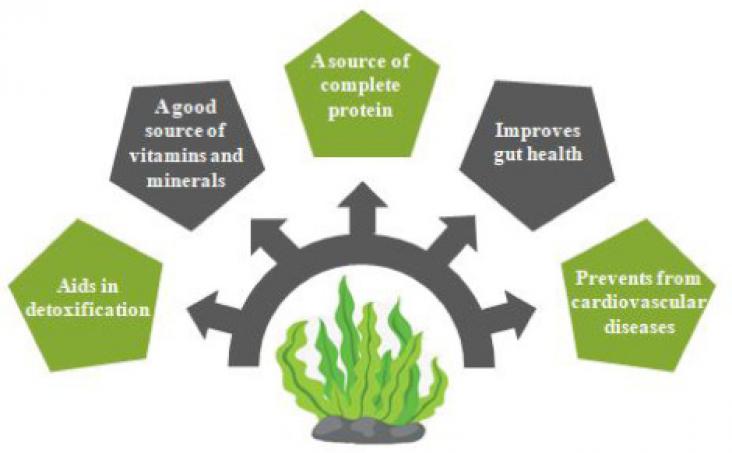
Cirium develops a methodology to calculate the most accurate, historic, and predicted flight emissions data in the marketplace. This will allow airlines to track the fuel efficiency of their operations and customers to track and choose the lowest possible carbon footprint when they travel. This supports climate action and SDG 13.
A Health Policy paper on the health impacts of banned pesticides in the Yaqui population in Mexico, in the context of SDGs 3, 10, and 12, highlighting recommendations for system-level solutions and policy change to current US, UN, and global laws.

The eminent protein sources among the vegetarian population include cereals and pulses that do not satisfy the Recommended Dietary Allowance (RDA) level.
Brewer's spent grain (BSG), a protein-rich agro-industrial by-product, was used to develop edible film. The effect of pH and protein concentration on the physical properties of films were studied. While high pH favors the increase in the protein film's solubility, with increased tensile strength, elongation at break, and puncture strength; swelling capacity, water activity, and water vapor permeability (WVP) decreased with increasing pH. Increased concentrations of protein in films resulted in enhanced moisture content, mechanical properties, and water activity. Furthermore, the transparency values of films were increased by increasing pH and decreased by increasing the protein concentration.
Edible film, with unique biodegradable and renewable characteristics, is considered a potential alternative for petroleum-derived polymer packaging. The review provides an overview on the various aspects of edible film, such as the film formulation, source of materials, film characteristic as well as safety and regulations of edible film applications.
Elsevier,
Mark John Costello, Restoring Biodiversity and Living With Nature (Based Solutions), Editor(s): Dominick A. DellaSala, Michael I. Goldstein, Imperiled: The Encyclopedia of Conservation, Elsevier, 2022, Pages 7-14, ISBN 9780128211397
This chapter advances the UN SDG goals 12, 13 and 17 focussing on the restoration of biodiversity, which has become an international priority. Recognizing that it is difficult to determine when biodiversity has recovered, five indicators of recovery are proposed.
This chapter aligns with Goal 12: Responsible Consumption and Goal 15: Life on Land by giving a review of the jaguar species, including their ecology, behavior, threats, and conservation status, highlighting recent initiatives to conserve jaguars.
This Series paper supports SDG 3 and 11 by calculating spatial indicators of urban design and transport features that support health and sustainability for 25 diverse cities in 19 countries.
Providing affordable access to enough healthy and safe food for an ever-more-affluent and growing world population has become more challenging in the face of climate change, rising income inequality a
This chapters advances SDG goals 11 and 12 by highlighting the pressures posed by agricultural activities to inland water systems. It discusses each of the pressures considering the trade-offs between productivity and environmental impacts.
